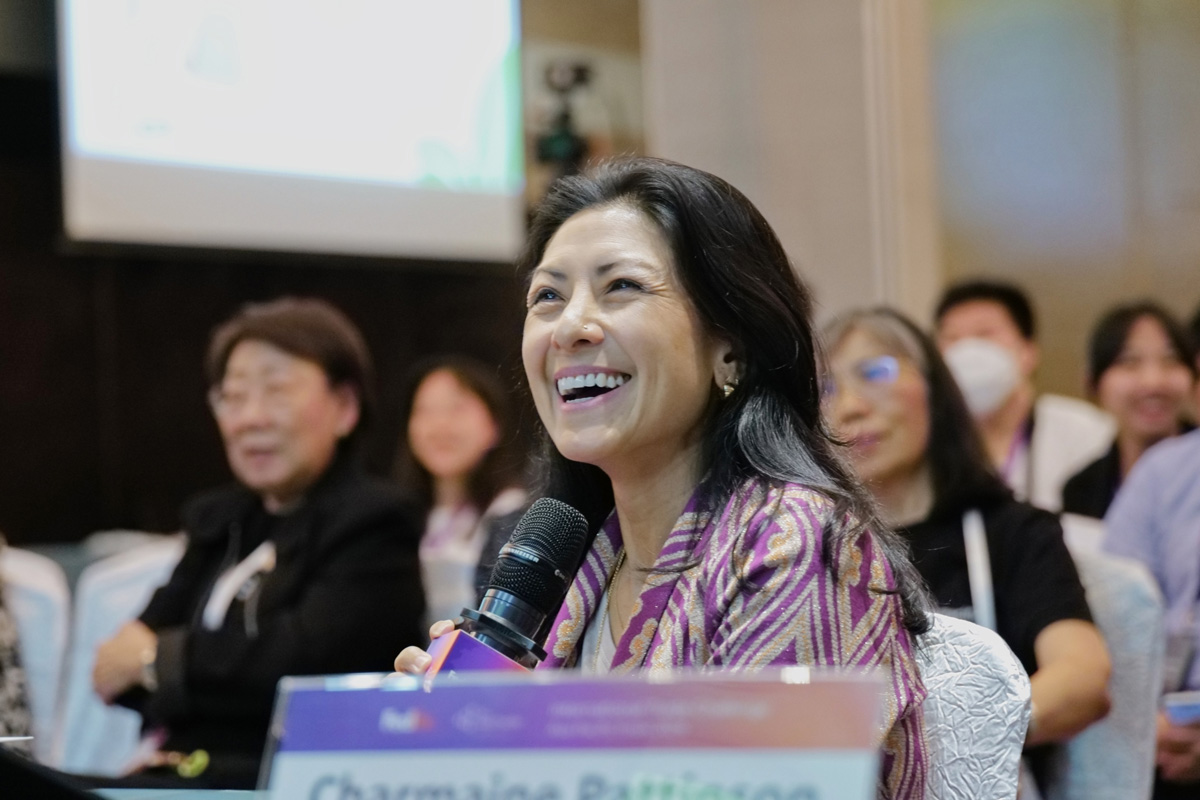How Greenie Web’s CEO Started His Decarbonization Business At 13
Ian Chew is the CEO of Greenie Web, a climate tech start-up based in Singapore that specializes in digital decarbonization. He reflects on an entrepreneurial journey that started when he was just a teenager.
- Greenie Web is a climate tech start-up that helps businesses tackle the carbon emissions from their digital footprint.
- The platform doesn’t just calculate emissions. It also implements solutions for digital decarbonization at enterprise scale.
- Greenie Web CEO Ian Chew reflects on a 15-year journey as a tech-driven entrepreneur.
Confessions of a CEO: Ian Chew of Greenie Web
- 1. Decarbonization is a major concern globally, but digital decarbonization is lesser known. How and why did you get into this field?
- 2. You founded Greenie Web at 13. How has the company grown over the years?
- 3. What makes digital decarbonization in Asia different from the rest of the world?
- 4. Where are your key markets and where will you expand next?
- 5. More climate tech start-ups are offering carbon calculators to businesses globally. How does your business model differ from the rest?
- 6. How has AI helped you strengthen and scale your business?
- 7. What are the 3 most important things companies can do now to reduce digital emissions?
- 8. What’s one belief you hold that other business leaders might disagree with you on?
- 9. What’s the greatest business failure that you treasure the most?
- 10. What is your ultimate vision for the future of Greenie Web?
Did you know that every time you send an email or watch a video online, CO2 is emitted?
Around 5.45 billion people globally are now connected to the internet. Most are unlikely to realize that every virtual action has a physical carbon cost. Is the internet becoming a ‘forgotten frontier’ of carbon emissions?
Around the world, companies have started counting the invisible cost of staying connected. Digital habits – and the rise of online-only businesses, remote working and global internet penetration – are responsible for a major increase in carbon emissions. In the last five years alone, Google’s emissions have jumped by almost 50% as they scale up their use of AI web technology.
Driven to find new ways to offset the carbon emissions generated by the internet, Singapore-based entrepreneur Ian Chew founded his climate tech start-up, Greenie Web, to help companies effectively track their digital carbon footprint.
Around 5.45 billion people globally are now connected to the internet. Most are unlikely to realize that every virtual action has a physical carbon cost. Is the internet becoming a ‘forgotten frontier’ of carbon emissions?
Around the world, companies have started counting the invisible cost of staying connected. Digital habits – and the rise of online-only businesses, remote working and global internet penetration – are responsible for a major increase in carbon emissions. In the last five years alone, Google’s emissions have jumped by almost 50% as they scale up their use of AI web technology.
Driven to find new ways to offset the carbon emissions generated by the internet, Singapore-based entrepreneur Ian Chew founded his climate tech start-up, Greenie Web, to help companies effectively track their digital carbon footprint.

A pioneer in digital decarbonization, Ian initially launched Greenie Web as a passion project at the age of 13. It has since evolved into a thriving business serving clients across Asia and Europe.
We spoke with the Forbes 30 Under 30 honoree about his journey in digital decarbonization, how his business has transformed since he launched it as a teenager, and the three most important things companies can do now to reduce digital emissions.
We spoke with the Forbes 30 Under 30 honoree about his journey in digital decarbonization, how his business has transformed since he launched it as a teenager, and the three most important things companies can do now to reduce digital emissions.
Decarbonization is a major concern globally, but digital decarbonization is lesser known. How did you get into this field and why did you choose to focus on this area of emissions reduction?
Ian Chew: My journey into digital decarbonization began when I founded Greenie Web at age 13. From a very young age, I was captivated by the potential of technology but became concerned about the environmental cost of digital infrastructure.
As I started to learn coding, I saw a unique opportunity to reduce emissions in a field where very few were paying attention: digital operations. Greenie Web emerged as a solution to tackle the carbon footprint of websites, applications, and data systems. I chose this path to help create meaningful change in an area that’s often overlooked in sustainability discussions.
As I started to learn coding, I saw a unique opportunity to reduce emissions in a field where very few were paying attention: digital operations. Greenie Web emerged as a solution to tackle the carbon footprint of websites, applications, and data systems. I chose this path to help create meaningful change in an area that’s often overlooked in sustainability discussions.
How has Greenie Web grown in the past 15 years since its inception?
What began as a passion project in 2009 became a fully incorporated firm in 2021. Greenie Web has evolved from a one-person start-up into a global presence championing digital sustainability. My role has transitioned from coder to strategist and leader, allowing me to focus on scaling the company and pushing the envelope in digital decarbonization.

What makes digital decarbonization in Asia different from the rest of the world?
Asia represents both tremendous opportunities and unique challenges. On one hand, the region is home to some of the fastest-growing digital economies in the world, with a rapid shift towards cloud computing, mobile infrastructure, and digital platforms. This makes Asia a fertile ground for digital decarbonization initiatives.
On the other hand, the regulatory landscape in parts of Asia is still developing. There’s also a cultural component. In some Asian countries, awareness around digital sustainability still has much room for growth. I see these challenges as stepping stones. As awareness grows, so will the opportunities to make a significant impact.
On the other hand, the regulatory landscape in parts of Asia is still developing. There’s also a cultural component. In some Asian countries, awareness around digital sustainability still has much room for growth. I see these challenges as stepping stones. As awareness grows, so will the opportunities to make a significant impact.
Where are your key markets and where will you expand next?
Currently, our key markets are in Europe, and parts of Asia, where there is strong demand for digital decarbonization. However, we see huge potential for growth in emerging markets like Southeast Asia, South America, and Africa, where digital infrastructure is rapidly developing. These regions could implement sustainable practices from the start, avoiding the pitfalls of carbon-heavy development.
More climate tech start-ups are offering carbon calculators to businesses globally. How does your business model differ from the rest?
At Greenie Web, we don’t just offer a tool. We offer a holistic solution. While many platforms provide emissions calculators, we go further by integrating these insights directly into a company’s digital architecture. Our approach focuses on real-time optimization and continuous reduction of carbon emissions.
We use cutting-edge technology like AI and machine learning to not only measure but actively reduce energy consumption and thus carbon footprint of digital operations. Our solutions are tailored to the specific needs of each client, so they can stay competitive while prioritizing sustainability.
How has AI helped you strengthen and scale your business?
AI is now a cornerstone of our work at Greenie Web. It’s enabling us to offer smarter, more efficient digital decarbonization solutions. From optimizing code automatically to predicting energy usage patterns, AI helps us identify ways to reduce emissions in real-time.

It also plays a crucial role in scaling. We can manage larger datasets, analyze complex systems, and deliver personalized solutions to clients faster than ever before. As well as helping us grow, AI has reinforced our commitment to driving innovation in the sustainability space.
What are the 3 most important things companies can do now to reduce digital emissions?
- 1. Audit your digital operations. Understand where energy is being consumed and where there’s room for improvement.
- 2. Focus on optimizing code and infrastructure. Reducing bloatware, improving server efficiency, and leveraging cloud platforms that prioritize sustainability can make an enormous difference.
- 3. Adopt renewable energy for your data centers or choose cloud providers that do so. Small changes can have a cascading effect, significantly lowering emissions without compromising functionality.
What’s one belief you hold that other business leaders might disagree with you on?
I strongly believe that sustainability and profitability are not mutually exclusive. They can and should coexist. Some business leaders still see environmental initiatives as a cost center, but I view them as a catalyst for innovation and long-term growth.
Being green doesn’t just save the planet; it can save money and open up new market opportunities.

What’s the greatest business failure that you treasure the most?
One of my most valuable lessons came early in my entrepreneurial journey. I tried to scale too quickly without the right infrastructure in place. Greenie Web experienced a surge in demand, but we weren’t prepared to handle the influx of clients. It was a chaotic period, and we lost a few key clients as a result.
However, that failure taught me the importance of pacing growth and investing in solid operational foundations. It also helped shape our current approach, where we focus on building sustainable, scalable solutions before diving into rapid expansion.
What is your ultimate vision for the future of Greenie Web?
To make digital sustainability the norm, not the exception. I want Greenie Web to be at the forefront of a global movement where every digital process, line of code, and website is optimized for environmental impact.
We’re working toward a future where digital infrastructure is carbon-neutral, and companies around the world see sustainability as a key pillar of their digital strategy. Ultimately, I hope Greenie Web will not only lead the charge in decarbonizing the web but inspire a new generation of tech entrepreneurs and climate-aware coders to build with the planet in mind.
***
Our Confessions of a CEO column quizzes Asia Pacific leaders on business insights that aspiring entrepreneurs can learn from. To discover more entrepreneurship stories like Ian’s, subscribe to our monthly newsletter below, and stay tuned for the next edition.



















 The Latest
The Latest